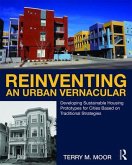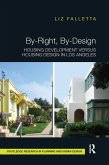Equitable access to decent housing remains a major global challenge, particularly for lower-income populations reliant on subsidised, affordable homes. Housing inequities are exacerbated by continuing commodification, demographic shifts, and the increasing time many now spend at home. Addressing these challenges requires stronger state intervention, closer cooperation between regulators, providers, and occupants, and a robust evidence base that links housing policy, supply, quality, and design with the social values needed to drive change. This book examines how housing design governance shapes the quality of homes and the wellbeing of residents, analysing the political, economic, social, historical, and environmental drivers of design. Drawing on new comparative data and evidence from England, Chile, China, the Netherlands, Spain, and Switzerland, it explores how contextual standards, cultural norms, and regulatory practices influence everyday life and perceptions of subsidised housing. Combining historical, technical, and social perspectives, this interdisciplinary design research study provides a multidimensional understanding of housing quality. It offers practical insights for policymakers, housing providers, and designers, showing how lived experience can inform future standards and policies to create more inclusive, adaptable, and sustainable homes and communities.
Bitte wählen Sie Ihr Anliegen aus.
Rechnungen
Retourenschein anfordern
Bestellstatus
Storno








